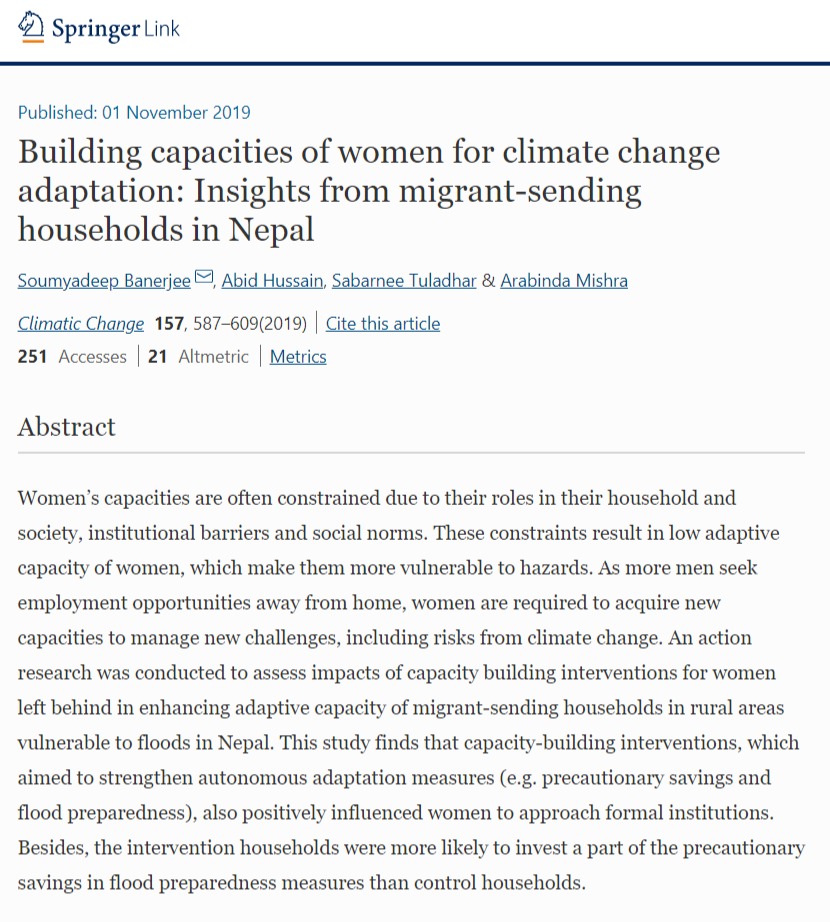
Women’s capacities are often constrained due to their roles in their household and society, institutional barriers and social norms. These constraints result in low adaptive capacity of women, which make them more vulnerable to hazards. As more men seek employment opportunities away from home, women are required to acquire new capacities to manage new challenges, including risks from climate change. An action research was conducted to assess impacts of capacity building interventions for women left behind in enhancing adaptive capacity of migrant-sending households in rural areas vulnerable to floods in Nepal. This study finds that capacity-building interventions, which aimed to strengthen autonomous adaptation measures (e.g. precautionary savings and flood preparedness), also positively influenced women to approach formal institutions. Besides, the intervention households were more likely to invest a part of the precautionary savings in flood preparedness measures than control households.